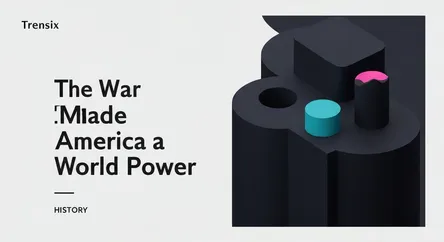History
The War That Made America a World Power

An explainer on the 1898 conflict that ended Spain's empire in the Americas and marked the rise of the United States as a global power.
What is it?
The Spanish-American War was a conflict fought in 1898 between the United States and Spain. The war originated from Cuba's struggle for independence from Spanish rule, which gained widespread American sympathy. The tipping point was the mysterious explosion of the USS Maine battleship in Havana harbor, which was blamed on Spain. Fighting occurred in both the Caribbean and the Pacific. The conflict was brief, lasting just a few months, and resulted in a decisive U.S. victory. The war officially ended with the Treaty of Paris, where Spain relinquished its claim to Cuba and ceded Puerto Rico, Guam, and the Philippines to the United States for $20 million.
Why is it trending?
This war remains a pivotal event in history because it marked a major turning point in global power dynamics. It effectively ended the Spanish Empire's long history of colonization in the Americas and shifted the nation's focus inward. Conversely, the victory propelled the United States onto the world stage, transforming it from a more isolationist nation into an imperial power with overseas territories. This dramatic shift in U.S. foreign policy continues to be a subject of historical analysis and debate regarding its motivations and consequences.
How does it affect people?
The war's legacy profoundly reshaped nations and identities. It established the United States as a global power with strategic territories that influence its foreign policy to this day. For the former colonies, the outcome was complex. Cuba gained formal independence but remained under heavy U.S. influence. Puerto Rico and Guam became, and still are, U.S. territories, a status that continues to fuel debate about political rights and self-determination. The transfer of the Philippines to American control was not peaceful; it led to the brutal Philippine-American War as Filipinos resisted their new colonizers.